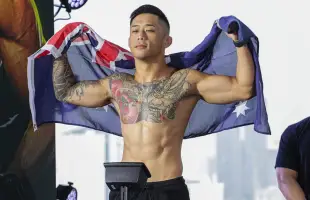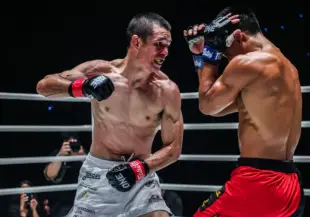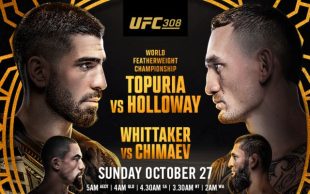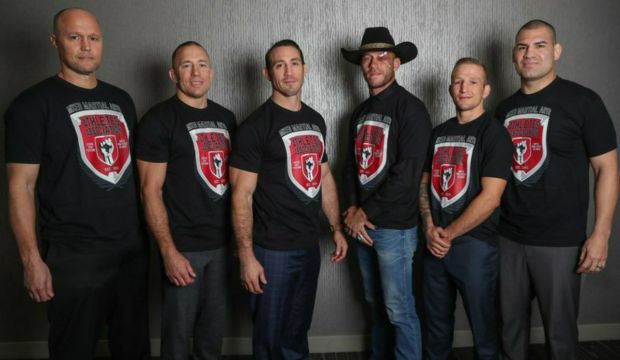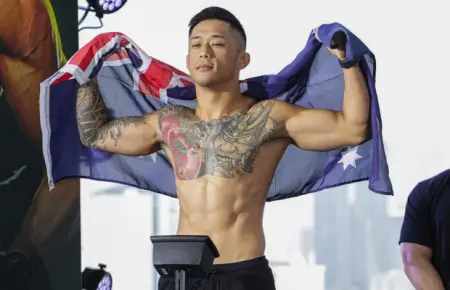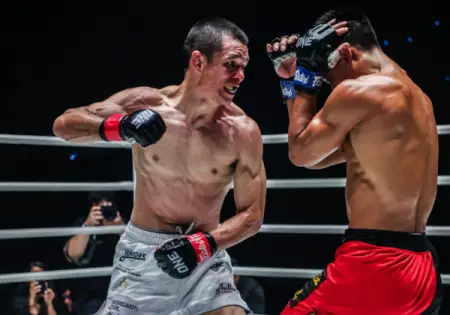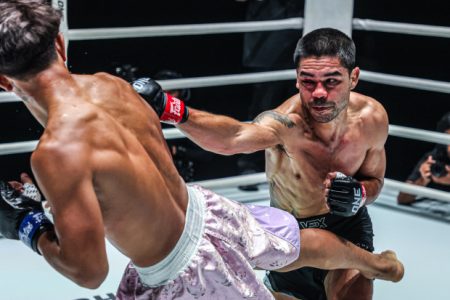Editor’s note: The views and opinions expressed below are those of the author and do not necessarily reflect the views of Fight News Australia, its affiliates and sponsors.
“I’m proud to announce the official launch of the Mixed Martial Arts Athletes Association. It’s gonna be big… we’re changing the sport forever starting today.”
That was Tim Kennedy this time 11 months ago, announcing the formation of the MMAAA alongside former champions Georges St Pierre, Cain Velasquez and TJ Dillashaw, perennial contender Donald Cerrone and former Bellator CEO Bjorn Rebney. The organisation’s aims, outlined in their inaugural teleconference, were threefold: (1) to seek an “enormous settlement” on behalf of active and former UFC fighters; (2) to revise the revenue sharing model so that fighter’s received 50% of revenues; and (3) to negotiate a collective bargaining agreement that would entitle fighters to ancillary conditions like pensions and health insurance.
How they were going to do that was less clear – the group expressly ruled out forming a certified labour organisation under the National Labour Relations Act, or bringing litigation against the UFC. But they had the star power and resources give the UFC a serious headache where other efforts, such as Jeff Borris’ Professional Fighters Association, appeared out of their depth. In Rebney’s words, their capacity to create change “came from the megaphone that these athletes speak from.”
Fast-forward to the present day, and you could be forgiven for thinking that the MMAAA was a belated Halloween prank to scare the UFC’s new owners. Almost immediately, Donald Cerrone walked back his commitment to the MMAAA, underscoring his loyalty to Dana White and to the promotion that had been eviscerated for “making money hand over fist” by his compatriots barely a week earlier. Promises that the association would be make “a consistent stream of announcements” and introduce the world to “the disregarded and forgotten fighters” of UFC’s past went unfulfilled, and after a brief round of media appearances, Rebney retreated back into the radio silence that characterised his departure from Bellator two years earlier. Far from using the athletes platform as a “megaphone” the MMAAA’s official twitter account posted its last tweet on 26 December 2016; and barely a peep has been heard from GSP, Velasquez and Dillashaw regarding the association, or its objectives, in 2017 (Kennedy’s a different story – but more on him later).
So what, if anything, can be said of the MMAAA almost after a year its emergence?
For starters, it’s beyond clear that putting Rebney as one of the faces of the association was a mistake. This is the same Rebney who dragged Eddie Alvarez to court when he tried to defect to the UFC back in 2013, and given his less-than-stellar reputation in the industry, it should have been a no-brainer to keep him in the background. There also seems to have been a good dose of information asymmetry when it came to Cerrone, who claimed he was never told he would be serving on the MMAAA’s board before fronting the press at the teleconference. This made the organisation and its agenda look shady, and judging by some of the fighter’s reactions to the launch, robbed them of a lot of momentum.
A cynic might also speculate that the speed with which the wheels fell off the organisation is at least tangentially connected with the improved fortunes of some of its members. Whilst Kennedy retired from the sport in January and Velasquez has been sidelined by a succession of injuries, both GSP and Dillashaw were granted title shots in the first quarter of 2017, with the latter also serving as a coach on season 25 of The Ultimate Fighter. No stranger to cut-throat business tactics, its not inconceivable those came at the cost of agreeing not to use their platforms for subversive purposes.
An even more pessimistic interpretation might be that GSP and Dillashaw only became involved with the association in order to improve their bargaining power, and were never interested in “changing the sport forever” for the benefit of other athletes. Indeed, Dillashaw had no problem taking Dana White’s side when Demetrious Johnson accused the UFC-boss of sustained bullying and mistreatment in June, even going as far as suggesting DJ’s accusations were an elaborate proxy to avoiding fighting Dillashaw. GSP too seemed blind to the hypocrisy of campaigning for fighters to get their “fair share” on the one hand and then leapfrogging a laundry list of deserving middleweight contenders to get his shot against Michael Bisping after a hiatus of more than three years.
For what it’s worth, Tim Kennedy doesn’t seem to have given up despite his retirement from the sport. In between active military service and shooting the History channel’s Hunting Hitler, Kennedy revealed he’s still actively involved in the MMAAA in an interview for Submission Radio last week. In fact, Kennedy went as far as to state that 60% of the UFC’s roster was in “active talks” with the association.
If Tim’s assertion is to be believed then its possible – albeit unlikely – that the organisation’s best days are ahead of it. 60% is an incredibly high number (by way of comparison, only 30% of fighters would be need to sign solicitation cards in order to approach the NLRB about conducting a union election) and the level of discontent around fighter mistreatment is unlikely to abate anytime soon. If the association can refine its PR strategy and begin agitating for reform (especially in response to incidents like this), we could be having a very different discussion in 12 months time.
Right now however, the association has given us little reason to be optimistic. Quite apart from near total radio silence since their official launch, there are still some troubling questions surrounding the involvement of the Creative Artists Agency and allegations that the MMAAA are just trying to cash in on the class action antitrust lawsuit currently being brought against Zuffa.
We’ll just have to wait and see if they can turn it around and “change the sport” for real. Because god knows, a lot needs fixing.
